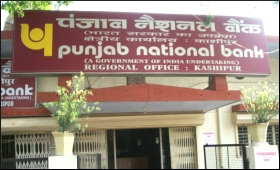|

|
Govt to soon recapitalise some PSBs with Rs 10,000 cr
|
|

|
|
| Top Stories |
 |
|
|
|
SME Times News Bureau | 18 Jul, 2018
The government is likely to recapitalise some state-run banks in urgent
need by up to Rs 10,000 crore within a few days to help them meet
regulatory capital requirements, official sources said on Tuesday.
According
to the Finance Ministry sources here, these banks, which include the
Punjab National Bank (PNB), Corporation Bank and the Central Bank of
India, are under pressure to make interest payment to bond holders of
their Additional Tier 1 bonds.
The high accumulated non
performing assets (NPAs), or bad loans, of banks and the consequent
provisioning for these, has hugely dented bank profits, while the
government has decided to recapitalise four-five banks which are facing
"acute shortage and risk breaching the regulatory capital requirement",
the officials said.
The fresh round of capital infusion of
between Rs 8,000 and Rs 10,000 crore may take place within this week, or
latest by the next, in these public sector banks (PSBs).
Last October, the Union Cabinet approved a Rs 2.11 lakh crore recapitalisation plan for PSBs.
In
January this year, the government notified the recapitalisation bonds
to allocate Rs 80,000 crore to 20 of these state-run banks. The bonds,
split into six instalments, bear interest rates between 7.35 per cent
and 7.68 per cent and will mature between 2028 and 2033.
The
State Bank of India (SBI) will receive the biggest share of capital from
the recapitalisation bonds, estimated at Rs 8,800 crore, followed by
the IDBI Bank at Rs 7,881 crore and the Bank of Baroda at 6,975 crore.
As
per the plan, PSBs are to get Rs 1.35 lakh crore through
recapitalisation bonds, and the balance Rs 58,000 crore through raising
of capital from the market.
The NPAs in the Indian banking system
have reached a staggering level of Rs 9 lakh crore, while the bad loans
of only the state-run banks add up to nearly Rs 8 lakh crore.
The government has embarked on a two-pronged strategy on bad loans.
On
the one hand, it has brought in the Insolvency and Bankruptcy Code
(IBC) which provides for a six-month time-bound insolvency resolution
process, and on the other, it has adopted the recapitalisation plan to
support the PSBs.
Commenting on the development, Acuité Ratings
& Research President-Ratings Suman Chowdhury described the proposed
fund infusion in PSBs as a significant affirmative action which will
assure the bank bond investors of continuing government support.
"It
reinforces our belief that the government would continue to support the
PSBs particularly those under PCA (prompt corrective action) of the RBI
and would not allow regulatory capital breaches which might lead to
defaults in hybrid and perpetual instruments," Chowdhury said in a
statement.
|
|
|
| |
|
|
|
|
|
|
|
|
|
|
|
|
|
|
| |
| Customs Exchange Rates |
| Currency |
Import |
Export |
US Dollar
|
₹91.35
|
89.65 |
UK Pound
|
₹125.3
|
₹121.3 |
Euro
|
₹108.5
|
₹104.85 |
| Japanese
Yen |
₹58.65 |
₹56.8 |
| As on 19 Feb, 2026 |
|
|
| Daily Poll |
 |
 |
| What is your primary "Make or Break" expectation from the Finance Minister this year? |
|
|
|
|
|
| Commented Stories |
 |
|
|
|
|
|
| |
|